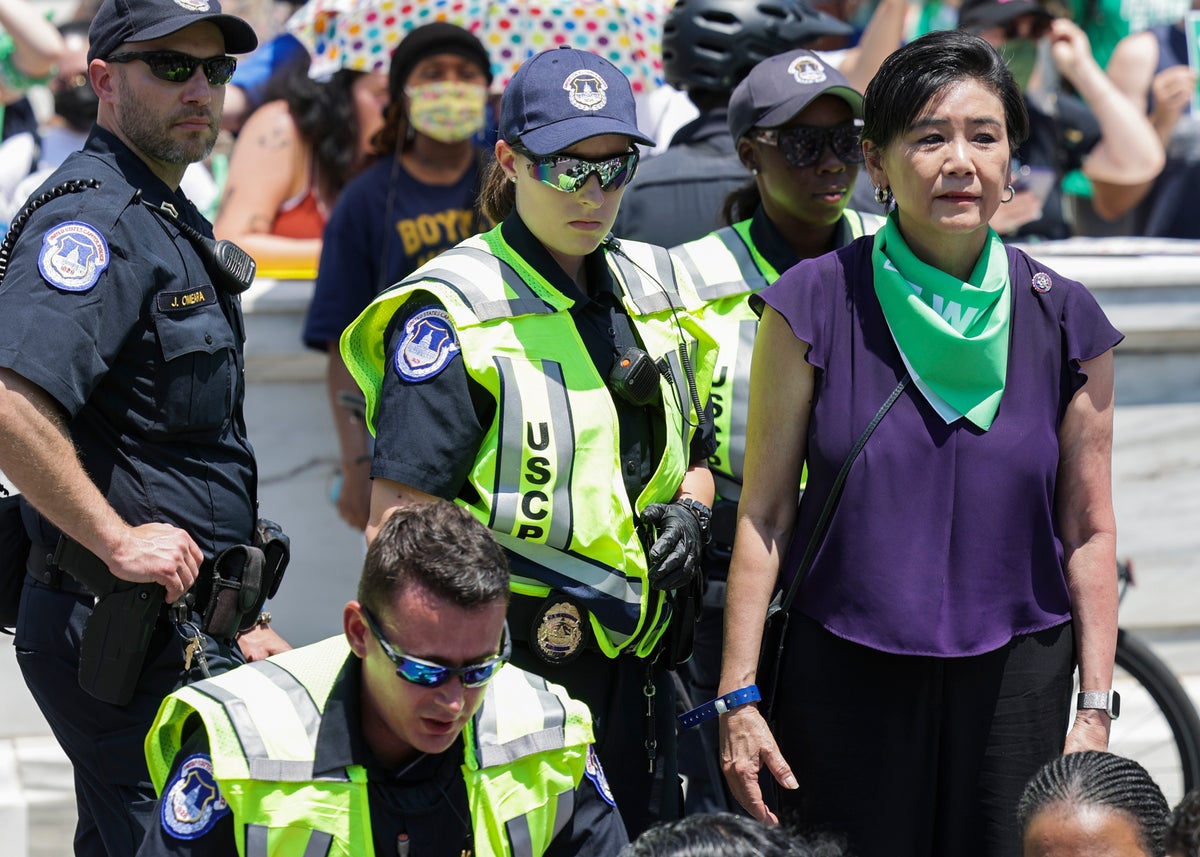
Democratic US Rep Judy Chu was among 181 people arrested near the US Supreme Court on 30 June following an abortion rights protest in the wake of a ruling to strike down constitutional protections for abortion.
US Capitol Police reported 181 people were arrested for “crowding, obstructing or incommoding” an intersection near the court and the US Senate office building during a protest organised by abortion rights advocacy groups.
Congresswoman Chu was the lead author of the Women’s Health Protection Act, a bill that passed the US House of Representatives that, if signed into law, would codify abortion protections affirmed by Roe v Wade.
“When I first heard Roe was overturned, I immediately thought of who would be most harmed by this decision: a young girl who is a survivor of rape, a woman who cannot afford to travel to another state to access critical care, an expecting mother with an ectopic pregnancy whose life is in danger because she cannot have an abortion,” the congresswoman said in a statement.
“So, when I think of all these women – and more – the decision to join in a peaceful demonstration to make clear we will not allow the clock to be rolled back on abortion rights was easy,” she added.
The congresswoman urged the US Senate to abolish filibuster rules that have allowed Republican senators to obstruct the bill’s passage in the upper chamber.
“Lives are at stake and this fight is far from over,” she said.
The protest on 30 June, on the final day of the Supreme Court’s current term, follows a week of actions in Washington DC and across the US, demanding federal protections for abortion rights and condemning the Supreme Court’s conservative-majority ruling to eliminate a constitutional right with a decision in Dobbs v Jackson Women’s Health Organization.
Also among those arrested on Thursday were actors Busy Phillips and Alysia Reiner.

Earlier on Thursday, President Joe Biden announced his support for changing Senate rules to codify abortion protections, as he did for passage of voting rights legislation, though the Senate lacks the votes to do either.
“The most important thing to be clear about is, we have to change – I believe we codify Roe v Wade in the law, and the way to do that is to make sure Congress votes to do that,” he told reporters. “And if the filibuster gets in the way, it’s like voting rights ... We provide an exception for this. We require an exception to the filibuster for this action.”







